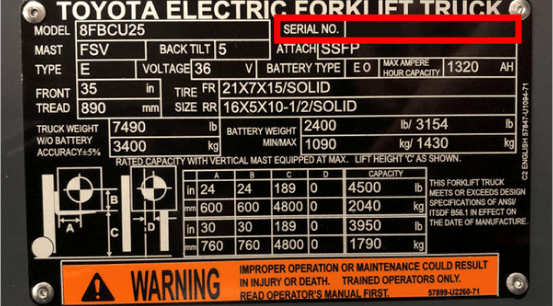Simplex Forklift Rental Customer Story
Complete Fleet
Simplex, a Canadian rental house, is switching forklift brands to provide better quality to its clients.
There is an old saying among supply chain professionals – you don’t build the church for Easter Sunday. In other words, you don’t design and equip a distribution facility just to meet peak demand periods. If you do, it will have too much capacity for most other times of the distribution year and be too costly to operate.
Knowing this, distribution companies rely on rental houses to provide the additional equipment they need to address seasonal peaks and times of special needs. And that is the sweet spot where Simplex operates. Based in Montréal, Québec, Simplex has been in business for 108 years and is one of the largest rental companies of its kind in Canada, with 40 different locations in Québec and Eastern Ontario. It rents everything from hand tools to 135-foot aerial lifts. And during the past year, it also began renting Toyota forklifts as part of its fleet.
Simplex added its initial 30 Toyota forklifts because of ongoing issues with another brand that Simplex had used for many lift truck rentals. “The cost of maintenance was very high on the other trucks, although the equipment was fairly new. It still cost us a lot of money to maintain,” explains Charles Desroches, vice president of the equipment division at Simplex. He adds that obtaining parts and other services from the previous vendor was also problematic.
“We had the opportunity to talk with one of the Toyota dealerships here in Québec, and we evaluated the equipment and compared it with competing products. We decided to give Toyota a try because our level of confidence with the product was very high, and we needed to try something different,” says Desroches. “The specs, the reliability, and the reputation of Toyota played a big role in making that decision.
Meeting Many Needs
Besides handling peak seasons, distribution facilities use rental forklifts for special projects that may require additional vehicles to move higher-than-normal volumes through their facilities, such as new-store openings or new-product introductions. They may also rent a forklift to replace an in-house truck that goes down for planned or unscheduled repairs. Renting is normally more cost-effective than keeping spare equipment on site.
Additionally, Simplex rents forklifts for special events. For instance, many of the Toyota forklifts were recently rented to set up and tear down the Montréal Auto Show. As evidence of the vehicles’ desirability, Desroches says that customers who have rented the Toyota trucks are now beginning to request them for their next rental.

Simplex provides a full range of rental forklift trucks in its fleet, including 5,000- to 36,000-pound capacity vehicles, order pickers, pallet jacks, and more. The 30 new Toyota forklifts in the fleet are all propane-powered trucks with 5,000-pound capacities. Going with one popular model of Toyota gave Simplex an opportunity to get familiar with the brand and how to maintain the trucks.Simplex performs its own preventive maintenance on the forklifts, and up until now, that is all that has been needed on any of the 30 trucks in the fleet.
“Toyota has made a huge difference. Although it has only been one year, in that one year we haven’t had a single warranty claim to make to our dealership,” says Desroches. “They go out on a rent, they come back, we inspect them, and then we send them out to rent. That’s basically what we have to do with them.”
Each year, the company spends up to $15 million to renew its rental equipment. Because of the success, dependability, and customer response to the Toyota 5,000-pound trucks, Simplex plans to look at Toyota forklifts in all ranges and classes as it replaces vehicles in the fleet.


